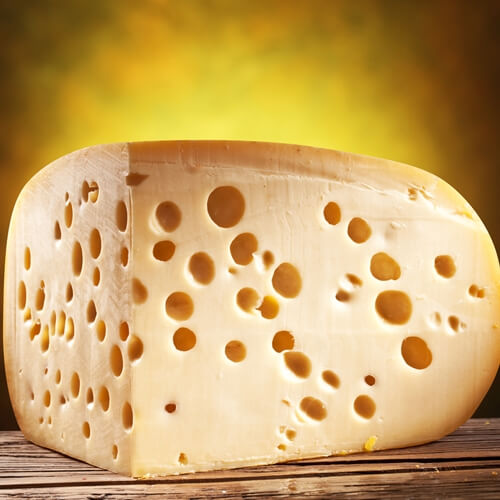Swiss battle cheese counterfeiters
According to Switzerland Cheese Marketing, approximately 10 percent of Emmental cheese found in supermarkets is a forgery. Switzerland, which is known for its cheese, exports well north of half a billion dollars in this dairy product each year. Swiss authorities and cheese producers cite forgeries as one of the reasons for a recent decline in international sales of Emmental, Gruyere and Tete, three cheeses for which Switzerland is world-renowned. That’s because forgeries are often made at lower costs in foreign locales, and counterfeiters not only ignore the regulations that ensure the products are of high quality, but also besmirch the reputation of Switzerland’s cheese. These cheeses have a rich culinary history on Swiss land, and are bound to geographical regions to be considered authentic. This is why Swiss officials are now using DNA fingerprinting to safeguard their national treasure, relying on a database of over 10,000 milk bacteria to keep track of real Swiss cheeses.
Cheese counterfeiters are real
Though it may sound like something out of a bad spy movie, there are cheesemakers producing counterfeit Swiss cheeses and inexpensive knockoffs. Cheap alternatives have had a detrimental effect on the cheese industry in Switzerland, potentially endangering the continued craftsmanship of dedicated cheese producers in the country. To make sure the cheese is of the highest quality, much of the work is still done by hand. However, these companies still have to turn a profit, and if they are undermined by cheap foreign competitors, then it’s only a matter of time before their industry suffers.
Swiss scientists were tasked with finding a bacteria to identify Emmental that would not alter the flavor, smell or texture of the cheese. The DNA marker makes it nearly impossible for counterfeiters to recreate Emmental, encouraging many to cease trying to pass off their own inauthentic cheese. Tete also has a distinct marker and Gruyere is expected to get one in the near future.
To learn more about cooking with quality cheeses, enroll in a culinary arts program online.


